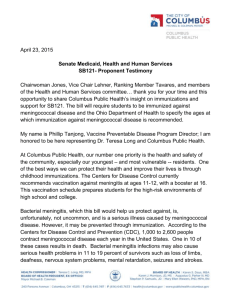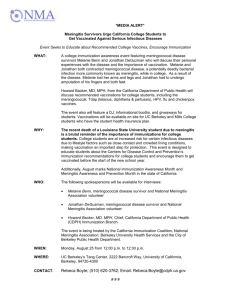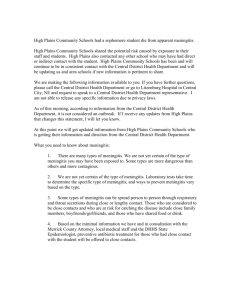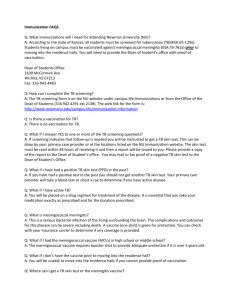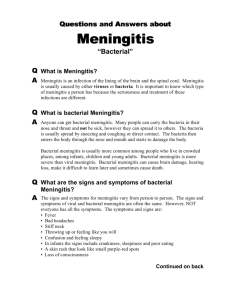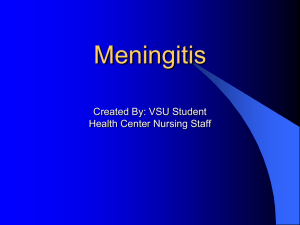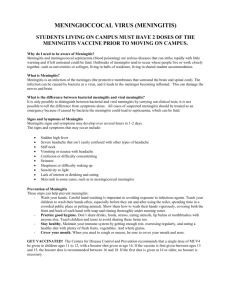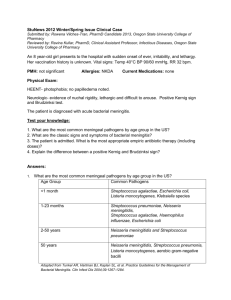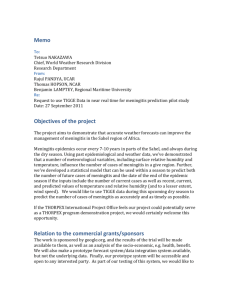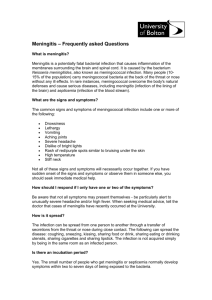Open Forum: Meningitis B
advertisement
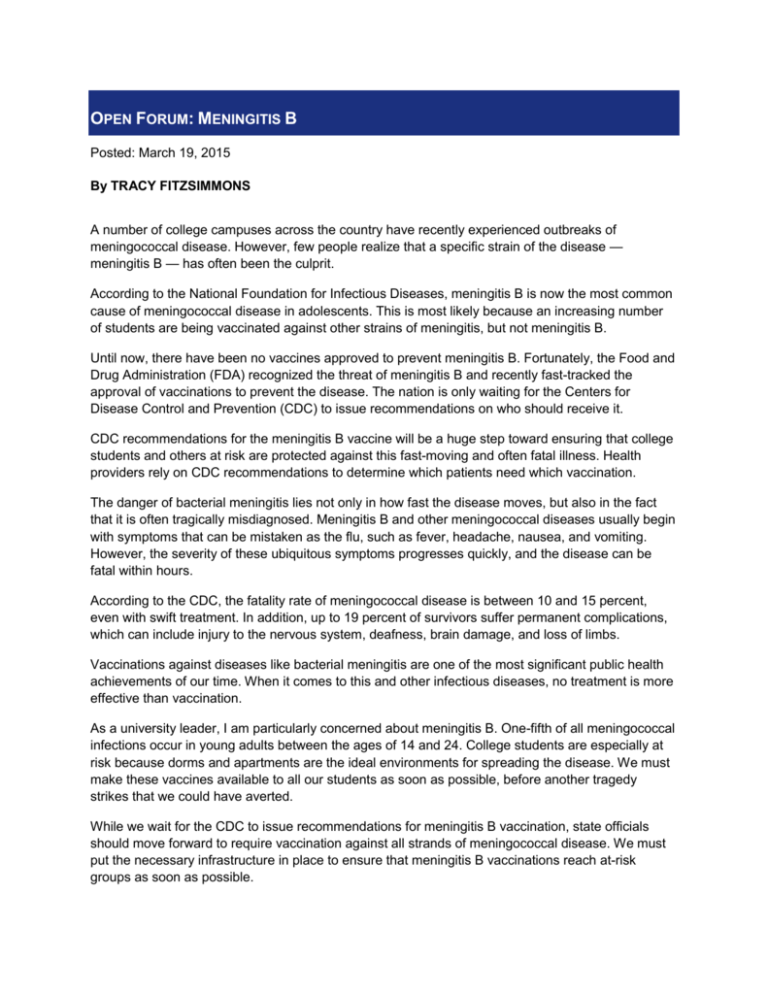
OPEN FORUM: MENINGITIS B Posted: March 19, 2015 By TRACY FITZSIMMONS A number of college campuses across the country have recently experienced outbreaks of meningococcal disease. However, few people realize that a specific strain of the disease — meningitis B — has often been the culprit. According to the National Foundation for Infectious Diseases, meningitis B is now the most common cause of meningococcal disease in adolescents. This is most likely because an increasing number of students are being vaccinated against other strains of meningitis, but not meningitis B. Until now, there have been no vaccines approved to prevent meningitis B. Fortunately, the Food and Drug Administration (FDA) recognized the threat of meningitis B and recently fast-tracked the approval of vaccinations to prevent the disease. The nation is only waiting for the Centers for Disease Control and Prevention (CDC) to issue recommendations on who should receive it. CDC recommendations for the meningitis B vaccine will be a huge step toward ensuring that college students and others at risk are protected against this fast-moving and often fatal illness. Health providers rely on CDC recommendations to determine which patients need which vaccination. The danger of bacterial meningitis lies not only in how fast the disease moves, but also in the fact that it is often tragically misdiagnosed. Meningitis B and other meningococcal diseases usually begin with symptoms that can be mistaken as the flu, such as fever, headache, nausea, and vomiting. However, the severity of these ubiquitous symptoms progresses quickly, and the disease can be fatal within hours. According to the CDC, the fatality rate of meningococcal disease is between 10 and 15 percent, even with swift treatment. In addition, up to 19 percent of survivors suffer permanent complications, which can include injury to the nervous system, deafness, brain damage, and loss of limbs. Vaccinations against diseases like bacterial meningitis are one of the most significant public health achievements of our time. When it comes to this and other infectious diseases, no treatment is more effective than vaccination. As a university leader, I am particularly concerned about meningitis B. One-fifth of all meningococcal infections occur in young adults between the ages of 14 and 24. College students are especially at risk because dorms and apartments are the ideal environments for spreading the disease. We must make these vaccines available to all our students as soon as possible, before another tragedy strikes that we could have averted. While we wait for the CDC to issue recommendations for meningitis B vaccination, state officials should move forward to require vaccination against all strands of meningococcal disease. We must put the necessary infrastructure in place to ensure that meningitis B vaccinations reach at-risk groups as soon as possible. Vaccines are the most effective tool to prevent bacterial meningitis and other communicable diseases. Officials at the CDC and state policymakers should seize on the opportunity presented by new meningitis B vaccinations and act now to make sure that Virginians are protected against this devastating disease. Tracy Fitzsimmons is president of Shenandoah University.
